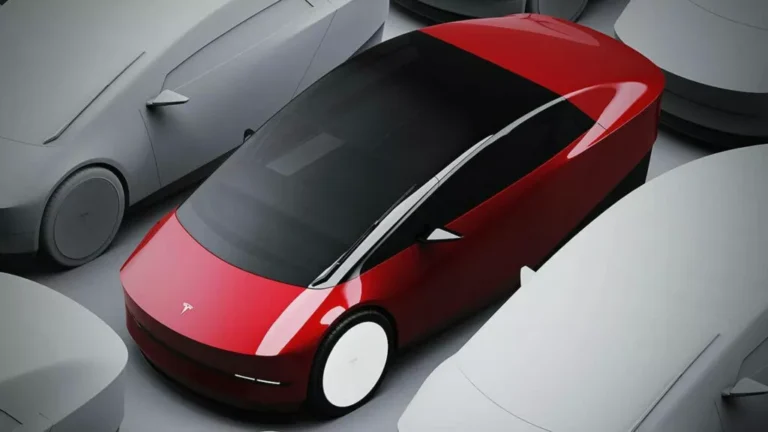In a surprising twist, Ramzan Kadyrov, a Chechen warlord, recently claimed that Elon Musk, CEO of Tesla, remotely disabled a Cybertruck that had been gifted to him. This allegation has stirred up conversations online, as it raises questions about Tesla’s remote control capabilities and the ethics surrounding such actions. According to Kadyrov, the Cybertruck, which initially worked perfectly, became inoperable due to Musk’s intervention via Tesla’s remote systems.
Let’s explore the details of this claim, Tesla’s remote technology, and the broader implications of this situation for vehicle ownership and control.
The Allegation: What Happened?
Kadyrov, leader of the Chechen Republic, accused Elon Musk of remotely disabling the Tesla Cybertruck he received as a gift. He stated that while the vehicle functioned normally at first, it later stopped working unexpectedly. Kadyrov suggested that Tesla’s remote control technology played a role in the sudden failure of the vehicle. Although no concrete evidence has emerged to support his claims, the story has drawn significant attention. Some view it as a potential political stunt, while others are intrigued by the possibility of Tesla’s technology being used in such a manner.
Tesla’s Remote Control Features
Tesla vehicles, including the Cybertruck, come equipped with advanced software and remote capabilities. These features allow Tesla to remotely push software updates, monitor vehicle performance, and disable certain functionalities when necessary. Typically, these tools are used for maintenance, safety, or in response to security threats. However, Kadyrov’s claim has fueled concerns about the extent of Tesla’s control over the vehicles it manufactures.
One of the most notable features Tesla offers is Autopilot, which enables semi-autonomous driving. In addition, Tesla regularly uses over-the-air (OTA) updates to improve vehicle performance and introduce new features. However, Tesla also retains the ability to remotely disable certain functions. For instance, they can cut off access to Supercharging or remove Autopilot if there are payment or safety issues.
In this case, Kadyrov’s accusation implies that Tesla’s remote control features were used to completely disable the Cybertruck. While Tesla has not publicly commented on the specific claim, the situation has sparked discussions about how much power manufacturers should have over the cars they sell.
Vehicle Ownership and Control: Who Truly Owns the Car?
This situation brings up an important question: who truly controls a car in the age of connected technology? Traditionally, once a person bought a car, they held full control over it. However, with the introduction of connected cars like Tesla, ownership has become more complex. Modern vehicles are increasingly software-driven, and companies like Tesla retain the ability to manage a vehicle’s software remotely.
Kadyrov’s claim underscores the potential for automakers to control vehicles post-sale. Tesla’s ability to intervene with a car’s performance, whether for security, maintenance, or other reasons, raises concerns about the autonomy of car owners. Although Tesla’s remote systems are intended to enhance safety and functionality, they also give the company a degree of influence over its vehicles, even after they have been sold.
This is part of a larger trend in the automotive industry. As software-defined vehicles become more common, manufacturers can modify, update, or restrict vehicle functions long after the initial sale. While these features bring many benefits, they also give carmakers more control over how and when certain vehicle functions operate.
The Relationship Between Ramzan Kadyrov and Elon Musk
This incident also shines a light on the unusual relationship between Ramzan Kadyrov and Elon Musk. Kadyrov, a controversial figure due to his political actions in Chechnya, has publicly praised Musk in the past. Reports suggest that the Cybertruck was gifted to Kadyrov as a symbolic gesture. However, the recent accusation has clearly strained the relationship between the two.
Kadyrov’s claim that Musk personally disabled the Cybertruck adds a personal twist to the story, though there is no confirmation from Tesla or Musk. Whether this was a misunderstanding, a technical glitch, or a calculated move by Kadyrov remains to be seen.
The Future of Tesla’s Remote Capabilities
Tesla’s remote systems, which allow for everything from Autopilot management to software updates, have transformed the way modern cars operate. However, the allegation made by Kadyrov highlights potential concerns about these systems. If vehicles can be remotely controlled or even disabled without an owner’s consent, it brings up serious questions about vehicle ownership and privacy.
For Tesla, this incident emphasizes the importance of transparency and trust in its use of remote control features. While the company’s remote capabilities offer tremendous benefits in terms of security and maintenance, the idea that Tesla could disable a car raises concerns. Tesla will likely need to address these concerns moving forward to maintain customer trust.
Final Thoughts
The accusation that Elon Musk remotely disabled a Cybertruck belonging to a Chechen warlord has ignited discussions about Tesla’s remote capabilities and the nature of vehicle ownership today. Whether the claim proves true or not, it serves as a reminder of the growing influence that manufacturers have over their products even after they are sold. As technology continues to evolve, automakers and consumers alike will need to balance the advantages of connected cars with the potential risks of remote control.
As the automotive industry moves forward, issues surrounding ownership, control, and privacy will become more pressing. The outcome of this incident may shape future discussions about the ethics and limits of connected car technology.
FAQs
What did the Chechen warlord claim about his Cybertruck?
Ramzan Kadyrov accused Elon Musk of remotely disabling his Cybertruck, making it inoperable.
Can Tesla vehicles be controlled remotely?
Yes, Tesla vehicles can be controlled remotely for purposes like software updates, performance monitoring, and disabling certain functions when necessary.
What are the ethical concerns related to Tesla’s remote features?
The ability to remotely control vehicles raises concerns about ownership and autonomy, as manufacturers retain control over certain functions.
Has Tesla responded to these claims?
As of now, Tesla has not made any official statement regarding Kadyrov’s accusations.
How does this incident affect the future of connected cars?
It highlights the need for clear policies and agreements between manufacturers and consumers about the extent of remote control over vehicles.








